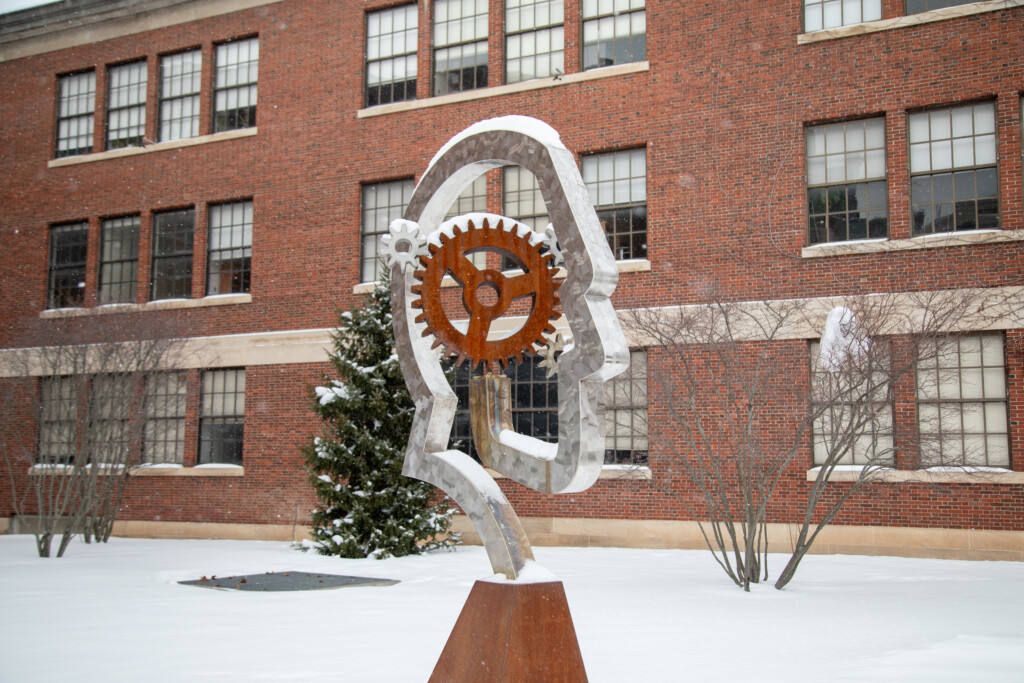Four-time Emmy winner Maria Hinojosa encouraged students and faculty to believe in their own power, as Dr. Martin Luther King Jr. would believe, in UR’s annual Martin Luther King, Jr. Commemorative Address.
“Dr. King had a dream, not a five-year strategic plan,” Hinojosa said.
Hinojosa spoke last Friday at the Strong Auditorium, discussing racism today and the city of Rochester.
She emphasized that everybody is scared and that humanity grows at moments of challenge and controversy.
Hinojosa said the biggest reason for racism in America today is fear. Specifically, the fear of people and their unfamiliarity with the rest of the world.
She implored the audience to eat their fears and pleaded for them to stop listening to statements made on TV. Instead, Hinojosa asked them to draw conclusions from their reality.
“We must trust people around us and don’t look at them as a threat,” Hinojosa said.
Hinojosa advised against uttering words such as “illegal immigrant” or “minority student.” She believes there is no such term as an “illegal human being” and nobody should be seen as a “member of the minority group.”
Hinojosa argued that if somebody drives and violates rules, they are not an illegal driver, but they have committed an illegal act. Many of the attendees snapped and clapped in agreement.
Another topic Hinojosa discussed was her attachment to Rochester. She talked about her “special relationship” with the city, a city that she believes “has deep implications with the rest of the country,” such as Frederick Douglass’s famous anti-slavery article “The North Star” and suffragette Susan. B. Anthony’s fight for women’s rights.
However, in her speech, Hinojosa also brings to light the darker side of the historical city, specifically infant mortality rates in Rochester.
“There are so many babies who died that there is a section in the Rochester cemetery just for that,” Hinojosa said. “It is not right.”
She addressed Rochester’s infant mortality rates with a scientific term called “toxic stress.”
A study has found that “toxic stress” can predict whether a baby will survive in the future. If a family has suffered from hunger, cold or fear for a long period of time, the odds are that the baby will be born sick. The constant anxiety and stress created by harsh conditions accumulates and passes on to the offspring.
“Yet, there is a hope,” she added. “There were people who helped these women to have healthy pregnancies. There were people who were able to stand up and say, ‘We are better than this.’”
She concluded that the city of Rochester “made her a better human being.”
Despite being an award-winning journalist and the anchor and executive producer of “Latino USA” on NPR, Hinojosa revealed that she struggled to write the speech.
She did not understand how a Latina woman with an accent was selected to deliver the Martin Luther King, Jr. Commemorative Address.
“Of course it makes perfect sense that I would feel inadequate in the United States of today,” Hinojosa said. “Because for anyone who is an immigrant, for anyone who has an accent, for anyone who is a woman, these are the challenging times.”
That statement drew ovations.
Even so, she still believes that “unarmed truth and unconditional love will have a final word in reality.”
Many members of the audience left inspired by Hinojosa’s words. Junior Justin Delinois described her as “unapologetic and boxing” in her speech.
